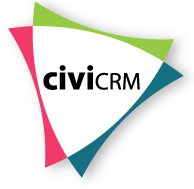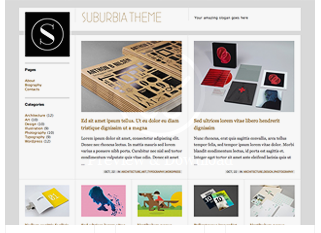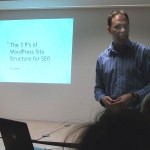
The first London Joomla user group meeting took place at UCL on 17 January. The user group is open to all with an interest in Joomla and no level of technical knowledge is required. This meeting welcomed many new faces and we hope they’ll join the user group again.
Joomla Template Overrides
There was no set agenda this month, but a topic that was explored in detail was template overrides. Joe from Softforge demonstrated the technique which allows you to modify the look and feel of your site in ways beyond what is built into the template options. By using template overrides you avoid modifying core Joomla files and this means you can update Joomla when you need to, without worrying about breaking your website. The technique is simple in essence, though finding the right files or files to move does require some knowledge, and asking the usergroup is a great place to get some help.
- Copy Joomla core file to appropriate location within template folder
- Modify copied file as required.
- Reload Joomla page (clearing cache if needed).
It was suggested that template overrides be covered in more detail in another user group meeting.
News from the Joomla eco-sphere
- Virtuemart out. The big daddy of Joomla shopping cart is finally released and feedback was good
- K2 out. A component the replaces the ‘article’ with more extendible functions. think of Joomla! articles with additional fields for article images, videos, image galleries and attachments.
- Rockettheme dropping Drupal. Popular Joomla template shop will stop developing themes for Drupal after low takeup.
- Joomla 2.5, the next long term stable release is due for release on 24 Jan. Joomla 1.5 reaches end of life in April 2012.
Mootools/jquery
Mootools is a bundle of javascript included in Joomla core and is often used for making sliders and pop up photo galleries. Many third-party extensions use the jquery javascript library for their functions and there is currently a debate around including jquery within Joomla core. At the moment you often get several copies of jquery loaded by different extensions (and often different versions of jquery at that!). The argument against adding jquery to Joomla core is that recently a lot of work has been focussed on making the core as lightweight as possible.
The next meeting is on February 21st. If you plan on attending, let us know at 2020Media and we’ll see you there.



 The regular monthly meetup of the London Joomla
The regular monthly meetup of the London Joomla  David Bain, an internet marketing expert who uses WordPress in his work, talked about getting your WordPress website noticed in the search engines. David talked us through his
David Bain, an internet marketing expert who uses WordPress in his work, talked about getting your WordPress website noticed in the search engines. David talked us through his  Keith Devon gave us a great introduction to Custom Post Types, which was very useful for the new developer or designer. Simply put, setting up Custom Post types allows you to add a new section to the admin menu for a adding content to a specific type of page that you design. For example if you had staff profiles, you can create a page entry that has boxes for their name, position and job description, and then on the front end display this in a particular way.
Keith Devon gave us a great introduction to Custom Post Types, which was very useful for the new developer or designer. Simply put, setting up Custom Post types allows you to add a new section to the admin menu for a adding content to a specific type of page that you design. For example if you had staff profiles, you can create a page entry that has boxes for their name, position and job description, and then on the front end display this in a particular way. 